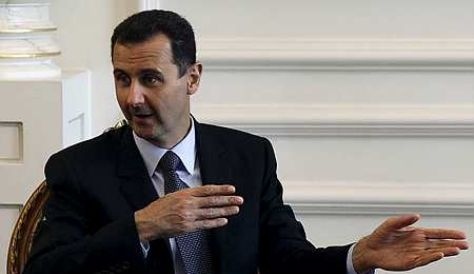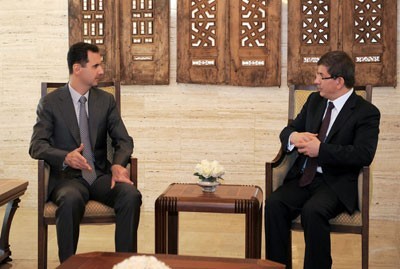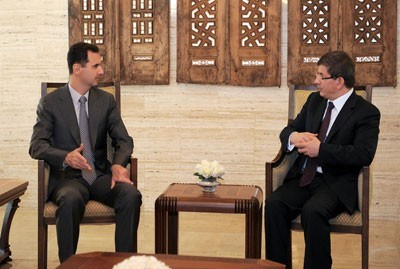Syrian lawmakers plan to adopt major reforms, including end to emergency rule, by May
 Syrian lawmakers plan to adopt major reforms in May, including an end to emergency rule, a politician close to the regime announced on Wednesday.
Syrian lawmakers plan to adopt major reforms in May, including an end to emergency rule, a politician close to the regime announced on Wednesday.
"There will be an extraordinary parliament session from May 2 to 6 in which social and political laws will be adopted in line with the reforms desired by the head of state," the politician told AFP. "Among them is new legislation that will replace the current emergency law," he said, adding that the proposed bill will be presented to the head of state before the end of the week, well ahead of an April 25 deadline.
According to the same source, Syrian President Bashar al-Assad "intends to ask members of civil society for their input and then the government will adopt the draft law to present it to parliament in early May".
The politician did not specify whether laws governing the formation of political parties and media would be reviewed in the extraordinary session but MP Ahmad Munir confirmed that the session would take place.
"In general, they last only one day. But, since this time we have been called in for five days, it is an indicator there will be draft laws to study and adopt," he said, adding the reforms would be published by state media.
 Meanwhile, Turkish Foreign Minister Ahmet Davutoglu voiced his country's backing for a Syrian government reform package on Wednesday when he met President Assad in Damascus.
Meanwhile, Turkish Foreign Minister Ahmet Davutoglu voiced his country's backing for a Syrian government reform package on Wednesday when he met President Assad in Damascus.
Russia on Wednesday came out in support of Syria's reported intentions to adopt major reforms as President Bashar al-Assad faces pressure to pursue political change and end emergency rule.
President Dmitry Medvedev, who last year became the first Russian or even Soviet-era leader to travel to Syria, spoke to his Syrian counterpart by phone to express his support for his government plans to launch reforms, the Kremlin said in a statement. "The president supported the intentions of the Syrian leadership to start internal reforms announced by Bashar al-Assad with the aim of preventing an unfavorable development of the situation and human casualties, for the sake of preserving civilian peace," the Kremlin said.
